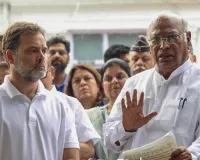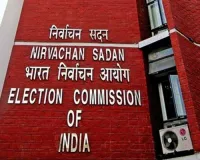Modi government turns 11 and going strong
Modi government

When Prime Minister Narendra Modi took oath for a third term on June 9, 2024, it was Rahul Gandhi who sounded rather upbeat on the back of the
When Prime Minister Narendra Modi took oath for a third term on June 9, 2024, it was Rahul Gandhi who sounded rather upbeat on the back of the BJP’s unexpected loss of majority in the Lok Sabha polls amid its campaign claim of crossing 400 in the 543-member House.
“We have finished Modi psychologically. His government will be removed soon,” the Congress leader was to assert as critics cited the BJP’s crucial dependence on TDP’s N Chandrababu Naidu and JD(U)’s Nitish Kumar, both with a history of switching alliances, and its weak show in big states like Uttar Pradesh and Maharashtra to forecast political turbulence ahead.
As the Modi government marks its first anniversary in the third term and 11th overall on Monday, the prime minister looks as secure and sounds as confident at the helm as ever, while his two mercurial allies have not turned out to be unreliable crutches, as the opposition hoped, but strong pillars of support outdoing each other in lauding his leadership.
While the BJP went back to the drawing board to recraft its political and governance outreach and regained momentum by notching up surprisingly big wins in a string of assembly polls, the burst of fresh optimism in the main opposition Congress and other INDIA bloc parties fizzled out.
If the BJP turned the tide in Haryana and Maharashtra, two states where it suffered reverses in the Lok Sabha polls, on the back of its welfare measures and social engineering associated with regional leadership, it finally wrested Delhi after 26 years, eclipsing its plucky adversary Arvind Kejriwal of the Aam Aadmi Party on his home turf.
The BJP now appears set to make a fresh political charge after recouping the ground lost in the national polls a year back while the opposition is back to its disjointed self, with the Congress searching for an elusive and emphatic state poll win in a state.
Other BJP rivals like West Bengal Chief Minister Mamata Banerjee-led TMC and Kejriwal have drifted away from the Congress and the likes of Shiv Sena (UBT) and NCP (SP) stare at an uncertain future.
Manoj Kumar, an associate professor in Political Science at Delhi University, stresses Modi’s virtually unchallenged leadership status amid the opposition’s failure to take the battle to him.
“At any point in politics, there are always opportunities and challenges. But it seems there is no serious alternative to PM Modi as long as he is there,” he says, adding that the military action under Operation Sindoor has again cemented his image as the leader acting in national interest.
He acknowledges that the opposition’s issues built around caste census and alleged threat to the Constitution besides regional factors and the BJP’s complacency delivered a setback to the ruling party in 2024.
Kumar then goes on to add that the government’s decision to roll out caste enumeration in the census underscores the BJP’s strength in coopting politically resonant issues.
It has always worked to address caste concerns while ensuring that caste-based politics is not on its agenda, he said.
He says Modi’s welfare model built around ‘Sabka Saath, Sabka Vikas’ has helped the BJP and will continue to do so as the party has in prime minister a leader with popular charisma and trust who has no rival.
Leaders like Jawaharlal Nehru, Indira Gandhi and Atal Bihari Vajpayee were in a similar mould in popular acceptance at their best, he adds.
Despite the reduced majority, the Modi government has gone about with a nonchalant swagger in pushing ahead with the contentious part of its agenda.
The support it received from the TDP, JD(U) and Chirag Paswan-led LJP (RV) in the passage of the Waqf (Amendment) Bill in Parliament, despite some voices of concern among them over its provisions, underscored the BJP’s unchallenged dominance following its assembly poll wins.
The government has also gone ahead with the push to its “One Nation One Election” bills, which are being scrutinised by a Joint Committee of Parliament, despite lacking the two-thirds majority required for the approval of the constitutional amendment measure.
If the BJP seems to have clawed back its political territory lost to the opposition in the national polls in the first year of its third-term government, the next year will suggest if the party has more surprises for its rivals as the assembly poll cycle enters opposition strongholds like Tamil Nadu, West Bengal and Kerala, besides Assam and Bihar, two states ruled by the NDA.









